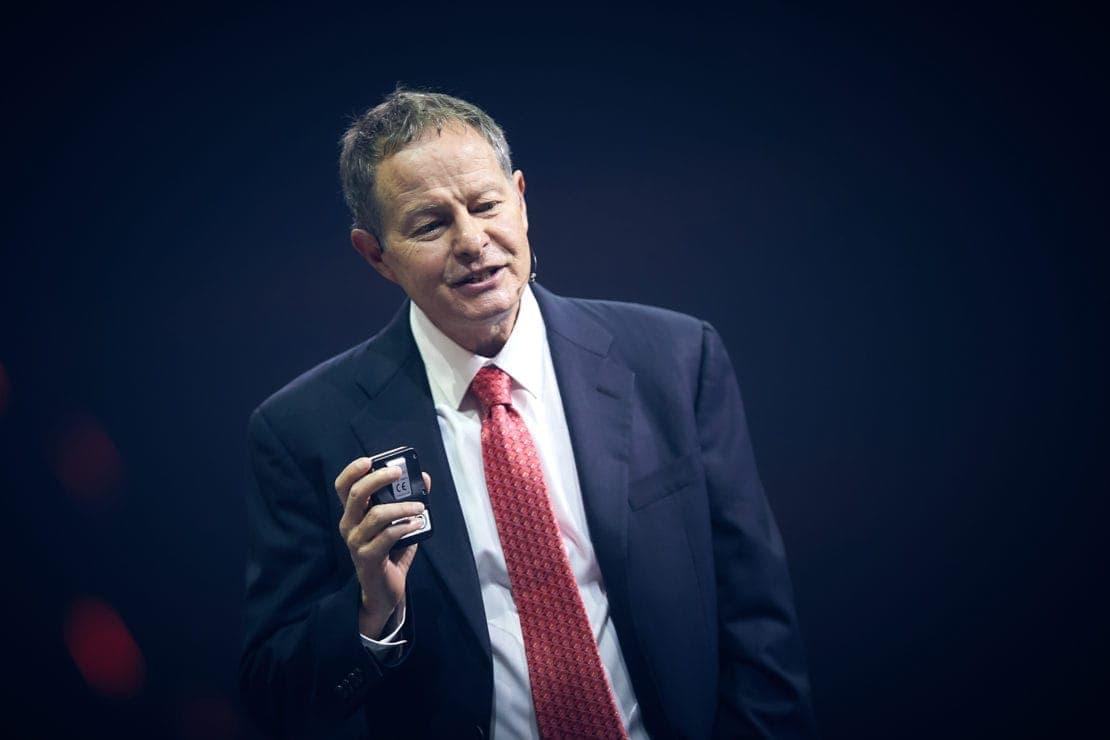19Nov2018
Social psychologist and best-selling author Amy Cuddy took to the stage at the Nordic Business Forum 2018 and asked the audience to join her in a thought experiment. She asked everyone to think of a major challenge they were facing: something like a job interview, pitching an idea, or speaking in front of a large audience.
When you feel dread in anticipation of a challenge, Cuddy said, “you’re already projecting yourself into a future that has not gone well.” The same goes for anxiety during the event and regret afterwards; they too prevent you from living in the moment.
“You’re not present in any of these stages,” she explained, “and the thing is, those are the situations that most demand us to be present.”
Three ways true presence reveals itself
So, what is presence? According to Cuddy, being present means you’re “attuned to and able to access and express your authentic best self.”
She shared three ways that presence reveals itself. First, when people are present, Cuddy said they believe their own story.
“Imagine having to buy something from someone who doesn’t themselves want to buy it,” she said. Of course, you wouldn’t. The lesson is that if you don’t believe yourself, no one else will either. Being present means believing your story.
Second, people that are present project confidence without arrogance. She said that confidence and arrogance are not one and the same. “Confidence is a tool,” explained Cuddy, while “arrogance is a weapon”. Confidence invites others in; it’s like a magnet that attracts people to you. Arrogance, on the other hand, is like a wall that shuts people out.
Third, when we are present, our words and our body language become synchronized. There is no need to think about what to do with our arms or how to stand, for when we are truly present and being our authentic best selves, these things fall into line automatically to match what we are expressing.
What prevents us from being present?
Cuddy listed several inhibitors to being present, such as clinging to the outcome at the expense of the process, obsessing about how others are judging us, and feeling powerless.
Worrying about how others perceive us prohibits us from being in the moment. “That is a distraction that is not worth its time, because we are usually wrong. What we should really be doing is focusing on the impression that we’re making on ourselves,” she explained.’
Cuddy would also like to liberate the idea of “power”, to eliminate the connotation of corruption.
“We need to be comfortable with the idea of feeling a sense of personal power,” she urged, clarifying that what she’s talking about is not zero-sum power, where one party is trying to control the other’s resources, but rather, a feeling of agency and self-efficacy.
For Cuddy, it is not enough for a society to simply be happy and free from anxiety. People must also feel a sense of purpose and power in order to achieve personal fulfillment. “We need to feel that we can get things done because power affects our thoughts, feelings, behaviors, and physiology.”
When people feel a sense of agency, they are also more likely to act on behalf of others. “One of the top predictors of not helping in emergencies is the feeling of powerlessness,” she pointed out.
We expand when we feel powerful
Cuddy next had another task for her audience: “Without adjusting, check your posture right now. Are you slouching? Are your arms crossed? Are your shoulders hunched forward?”
When humans feel powerful, “we expand,” she said and cited the work of researcher Jessica Tracy, who analyzed three dozen world cultures and found that, across the board, when people feel a sense of victory, they throw their arms up in the air.
“You see the same kinds of behaviors in other animals,” Cuddy explained while the screen behind her showed visual examples. “When they are signaling power, they make themselves as big as they can.”
Tracy found that even congenitally blind people do this. So even people who have never seen anyone throw their arms up in the air still mimic the behavior when they win. Cuddy told her Helsinki audience that this kind of behavior is “hardwired” into us as a species.
Power, then, is associated with expansiveness: we make ourselves bigger when we feel strong.
“So think about that biggest challenge again,” Cuddy told the audience. “Think about what you were doing right before it started. You were probably not expanding, right?”
Maybe you tried to tell yourself you weren’t nervous or perhaps you tried to convince yourself that you felt powerful. “It works really well when you feel good,” Cuddy said. ”But it doesn’t work as well when you’re feeling bad.”
While a pep talk might be helpful sometimes, Cuddy suggests a different solution: focus on the physical as well as the mental and change your body language.
Fake it ‘til you become it
On the screen behind her, Cuddy flashed this quote from Leonard Cohen: “Act the way you’d like to be and soon you’ll be the way you act”.
It sure sounds nice, but is it true? Cuddy said that once again, the research supports this notion. For example, a group of therapy patients were asked to sit upright for two to three minutes before their sessions. This simple experiment significantly improved the mood of the participants, for they later reported feeling better about themselves, recalled more positive memories, and chose more positive words from a list.
Maybe our parents were on to something when they kept asking us to sit up straight, Cuddy remarked.
Cuddy herself conducted a study where she put people through a stressful mock job interview. She randomly asked some of the participants to privately perform what she called high-power poses raising the arms or standing in a “Wonder Woman pose”–before they entered the room.
The results? The groups that did the high-power poses ahead of time were inevitably seen as more present, as well as being judged the more desirable candidates for the position.
To be clear, Cuddy doesn’t intend for people to start standing like a superhero during job interviews. But she maintains that assuming these power poses in private to help prep you for a daunting situation can help you get into the right mindspace and tap into your authentic best self.
“Your body is changing your mind,” she said. “Your mind is changing your behavior, and your behavior is changing your outcomes.
About Nordic Business Forum 2018
Nordic Business Forum 2018 was held on 26-27 September in Helsinki, Finland, gathering together 7,500 CEOs, top executives, and entrepreneurs from over 40 countries.
Download the full Executive Summary and read what the speakers said on stage at Nordic Business Forum 2018.


